I was saying at one point that for table tops or furniture that sits in damp environments it is recommended to stronger varnishes, such as catalyzed ones. When such materials are not used, we may have the surprise that when a hot cup of coffee is put on the table or a glass of cold water is left for a longer period of time and the condensation gets on the table, white spots may appear. Stains can also appear if the water or steam comes in contact with the surface of the cup for a longer time. As it is not always practical to refinish the whole piece of furniture, there are a few simple ways to remove some or all of the white stains.

Sometimes the white spot is moisture that has gotten inside the varnish film. It can be released if the spot is heated. Place a cotton towel on the affected spot and simply iron it. It works even better if steam is also released while the iron is being walked over the spot. It works if the surface is finished with varnish. If the finish is done with wax or shellac you may do even worse, because the film soaks in and takes on the nap or prints appear. That's why it's a good idea to try it in a corner first to see if the finish cracks.

A hair dryer can also be used as a heat source. Use it to gently warm the edges of the stain, then rub the stain with a wax or oil cloth. This may need to be repeated several times.

If the surface is waxed, moisture may be trapped in the wax layer. In this case remove the wax with denatured alcohol. If the wax is colored it will be a problem because the entire surface will have to be cleaned and then re-waxed, otherwise color differences will occur. If the wax is transparent, it is sufficient to clean only the affected area and then re-wax.
Alcohol can also remove superficial stains. But you have to be patient because it doesn't come out straight away. You will have to repeat the operation several times. Simply rub the spot with a cotton cloth soaked in alcohol.

If there is no moisture trapped in the film then the lake may have been damaged at the surface and then the damaged part must be removed. It can be done by polishing. You can polish the spot with toothpaste. The fine particles in the toothpaste will remove the damaged varnish from the surface until the good layer is reached. After removal, wipe the area with a cloth soaked in olive oil.

If the toothpaste is too thin you can make a 1:1 mixture with baking powder or salt. Rub the area with the mixture, then wash and wipe thoroughly. Finally lightly wax or wipe with a cloth soaked in linseed or olive oil.
A fine abrasive sponge or steel wool can also be used to remove the affected film, after which a heavy volatile thinner (or a solution of butyl acetate and butyl alcohol - an equalizer) is sprayed onto the surface. The spraying can be done with a simple device such as a window solution sprayer.

Surface cleaning can also be done by sanding followed by polishing. Be aware, however, that the surface gloss will increase after polishing.
An interesting method I heard about recently is rubbing mayonnaise on the surface. I admit I haven't tried it so far, but I'm tempted to do it soon. I promise to let you know about the result as soon as I test it.

The methods presented are practical and are the result of various tests carried out by passionate people. However, they may not always have a positive result, as the varnishes and other finishing materials used can react very differently. But it is much better to try to solve the problem with them first, rather than going straight to removing the finish altogether and redoing it.












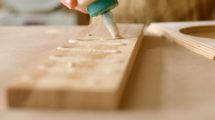

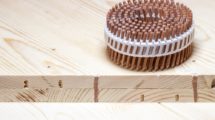


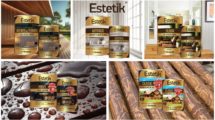
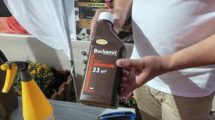
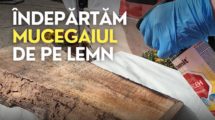




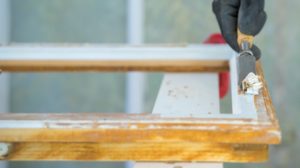
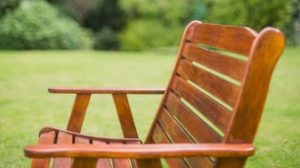
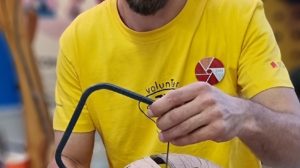

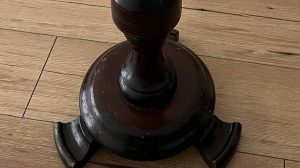
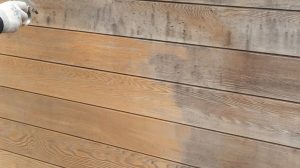
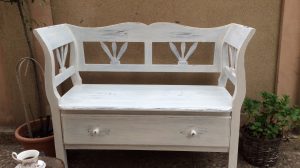
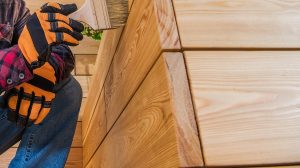
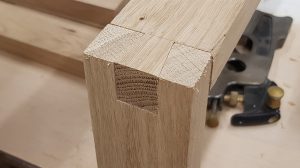



Hello. I would also like some advice or information if possible. Does anyone know how to remove some white stains after the surface of the furniture caused by spilling a glass of brandy on the furniture table, and other white stains caused by placing a hot pan on the furniture table (a matte surface is left behind). Can you advise me what solutions to use for the care, maintenance and polishing of furniture. Thank you very much. Sincerely Cristache Boju.
When polishing with shellac, in addition to shellac dissolved in ethyl alcohol [polishing], use siccative oil.
and pumice powder which helps to close pores and obtain a consistent and velvety film.
Hello! I made some white marks by spilling spit on an old wooden table. How can I fix it?
Hello!
Being old, the table was made with nitrocellulose varnish or shellac, products that are not resistant to alcohol.
To fix it you should gently sand the white area with a fine abrasive sponge or 280 or 320 grit sandpaper. In that area the varnish is brittle and you will remove it easily. You don't have to go deep, even if the film still remains slightly white. After removing the resulting dust, wash the whole countertop with water and dishwashing detergent (with a wet cloth), wipe it well and leave it to work until the next day (this will clean the surface of any grease that may have been deposited over time so that the varnish will adhere). Then apply transparent nitrocellulose varnish to the sanded area (available in DIY stores). You can apply it with a brush, a trowel or even with a soft cotton rag (which does not leave lint). After drying, if everything is ok, apply a final coat on the whole table top, to get an even surface. The surface comes out very well if you use a solvent-resistant sponge pad. There are small sanding pads in DIY stores, not like the ones for the wall. I use them and the surfaces come out even.
Good luck!
Hello,
Do you have any idea how I can remove a water stain that has soaked into the floor from a flower pot?
Thank you very much,
Hello!
Depends on how deep the water went in. If it's just at the top of the varnish layer and it looks like a white mist, you can remove it if you iron the surface over a tablecloth folded in 4 (like laundry). Run the iron over it a few times, then lift the tablecloth and let it cool and the water evaporate. Repeat 2-3 times.
If the water has been standing for a longer period and the varnish has become discoloured, the surface should be sanded to remove the affected varnish, then brush on 2-4 thin coats of water-based varnish (as it is compatible with most varnishes). Apply the varnish only to the affected area and in several coats, drying in between (do not pour the varnish to cover the hole because it will crack).
If the water has reached the floor and it has started to darken in colour, the lacquer should be completely removed and the wood sanded back to its original colour. The entire finish has to be redone and it cannot be done only on the affected area but has to be done on a larger surface so that everything looks good at the end. In this case it is better to call a specialist.
All the best!
Thank you very much for your advice. May God give you good health and long life. I solved a big problem with your help. With esteem and deep respect. George from Brasov.
And I thank you for telling me this. It's very nice to know you're being helpful.
All the best!
Hello,
I would be very happy if you could give me some advice. I washed a stain off the table with a kitchen sponge and the table turned white in that spot. Is there anything I can do to make the white stain disappear?
Thank you very much!
Good evening!
You scratched the lake and the water came in. You should heat the area with a hot air hair dryer or run a hot iron over a thin blanket placed over the spot. After running the hot iron over the blanket (or a sheet folded into several)2-3 times, lift the blanket to let the steam out, wipe the area with a clean soft cloth, let it soak a bit and repeat. Gradually the water will come out and the white stain will reduce.
Good luck!
Thank you very much for your advice, Mrs Mihaela Radu. I managed to remove 3 white stains from the dinning table, caused by glasses. Excellent advice!!! I will pass it on 🙂
Thank you for the feedback! It's really nice to know you've been helpful.
Hello. I have removed the edges of a matt mdf furniture with thinner (to remove glue) and there are traces on the door sides. How can I remedy the situation?
Thank you
Hello!
If the MDF is painted and the stain is opaque, you can try heating the area with a hair dryer or ironing with a hot iron over the whitened area on which you have placed a thin blanket or folded tablecloth. After ironing a few times with the hot iron, remove the tablecloth, let the steam disperse and wipe with a cloth. You may need to repeat the operation 2-3 times.
If the stain is very white and rough to the touch, the surface should be sanded to remove the affected area and then a coat of matt nitrocellulose varnish should be applied with a brush. If it was affected by thinner it was definitely such a varnish, so there will be no incompatibility problems. If you have previously used a cleaner like Pronto, you will need to sand the entire surface to remove traces of wax. Otherwise the varnish will not adhere.
The 2 methods of remediation are described in detail in the article below.
If the MDF is peeling, the thinner has probably attacked the foil and cannot be remedied. You'll need to talk to the furniture maker to rebuild the doors.
A few photos would help me better understand what happened. You can send them to mihaela.radu@cesbrands.ro.
All the best!
https://revistadinlemn.ro/2020/04/07/albirea-mobilei-din-cauza-dezifectantilor/
[...] White water stains on floors and parquet [...]